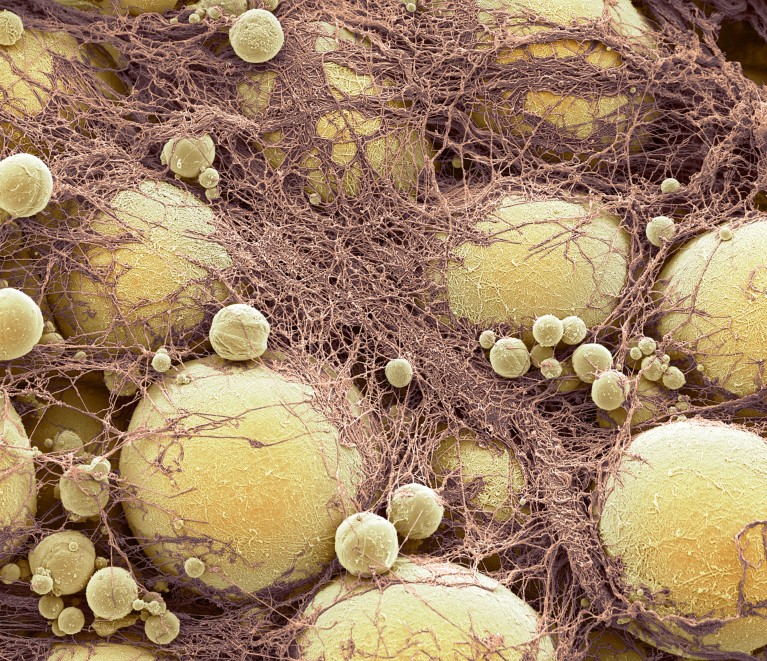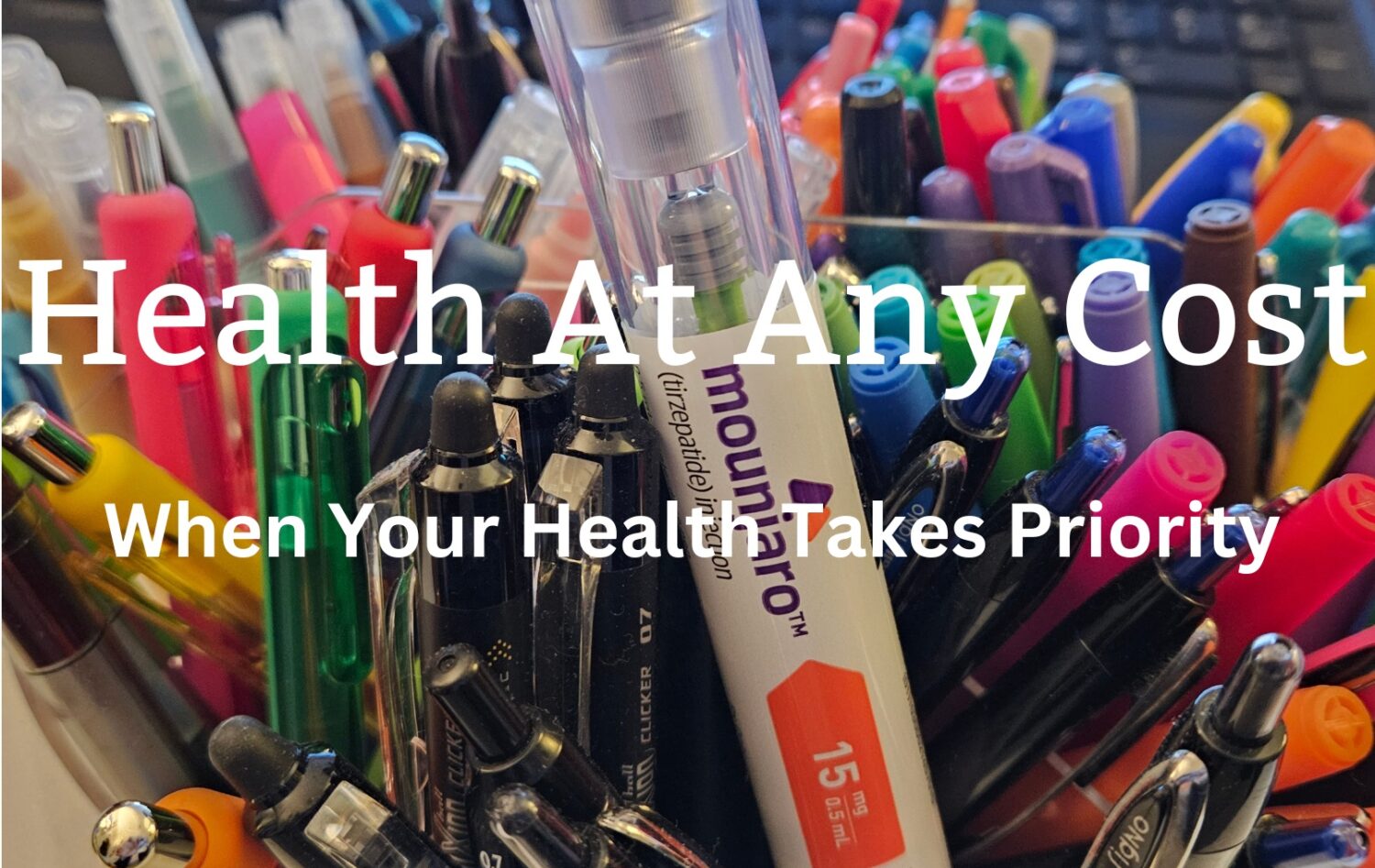
Those of us taking GLP-1s often ask what will happen after we stop taking the medications. While I am choosing to stay on them for life, plenty of people want to use them to lose weight while attempting to retrain their bodies and minds while on the meds. The retraining includes everything from ignoring food noise to working out each day, and everything inbetween. Mostly, they are hoping to learn how to eat smaller portions and stay away from “danger” foods that hampered their weight loss tries (and weight regain after the diets) previously. They have hopes despite what the research says.
The reality, borne out in research, is that two-thirds of people who were on a GLP-1 and stopped after losing weight will regain most of their weight back within one year.
Why?
Research debates several possible reasons. They talk about set-points, the metabolism slowing down, fat cells that don’t disappear and want to refill again, microbiomes, and more.
If we look at all of these possibilites, which one is culpable? It turns out they all might be to some extent. Because those mentioned theories are well-known, I am not going to cover them in this piece. But, let me add another theory that also needs to be considered as we look at the whole obesity picture.
What I am talking about is one of the newer ones: Epigenetics.
Epigenetics Definition
Apparently, when someone becomes overweight or obese, their genes are changed and the fat cells take on a sort of “memory” of their own. I purposefully said “are changed” and not “can be changed” because there is enough proof that these mechanical changes are occurring in each of us who struggles with weight.
What exactly is epigenetics?
Epigenetics is the study of how our environment influences our genes by changing the chemicals attached to them. What we eat, our physical activity level, access to resources and more affect those chemicals, in turn shaping our health. Epigenetics can help scientists understand why diseases happen and explore new avenues for treatment.
I want to share a more technical definition. It’s long, but doesn’t sound like it is a made-up science like the above definition does (to me).
Epigenetics is the study of how cells control gene activity without changing the DNA sequence.”Epi-“means on or above in Greek, and “epigenetic” describes factors beyond the genetic code. Epigenetic changes are modifications to DNA that regulate whether genes are turned on or off. These modifications are attached to DNA and do not change the sequence of DNA building blocks. Within the complete set of DNA in a cell (genome), all of the modifications that regulate the activity (expression) of the genes is known as the epigenome.
Because epigenetic changes help determine whether genes are turned on or off, they influence the production of proteins in cells. This regulation helps ensure that each cell produces only proteins that are necessary for its function. For example, proteins that promote bone growth are not produced in muscle cells. Patterns of epigenetic modification vary among individuals, in different tissues within an individual, and even in different cells within a tissue. Environmental influences, such as a person’s diet and exposure to pollutants, can impact the epigenome. Epigenetic modifications can be maintained from cell to cell as cells divide and, in some cases, can be inherited through the generations.
Epigenetics is not a new topic with regards to obesity, I acknowlege that, but it is rarely discussed.
New research, however has come out and Medpage Today summarizes the study in Nature:
In a recent study published in Nature, a team of scientists examined how adipose tissue, specifically fat cells, retains transcriptional changes even after significant weight loss, potentially leading to a predisposition for weight regain.
GLP-1s’ & Epigenetic’s Possibilities
What we know about the epigenetics of obesity is still being learned. One of the things we do not know yet is what role might GLP-1s have on the “memories” of those fat cells and genes that are in collusion with so many other aspects of our biology to keep us fat. Do they work together? Might a person have two of the several possibilities crash together to create the perfect storm to give them a lifetime of obesity?
Or could GLP-1s calm down the dividing cells or quiet the different cells from yelling, “Get her fat again!”
We don’t know the answers to these questions yet. But I see hope in the future (probably the distant future) that genetic technology will put these puzzle pieces together enough to create tests (blood, saliva, tissue samples, etc.) that will give all the possible combinations of the ways to have obesity and why we regain the weight over and over again. With those endless combinations, puzzle pieces, and genetic testing to see which medication, or combination of medications, will work best for an individual patient, we might be able to conquer the obesity world!





Thanks Barb!
IV been wondering myself with all these new people entering into our future that will be controlling our health care system, I am a bit concerned for us all. I sure hope we are not forced off these meds. I guess if it’s how it’ll be then we deal with it then. I like to educate myself enough to have a plan B in place. It seems more like we all will have to deal with how are bodies do, if we get cut off from it all, God forbid.
Still this is good information to know and I appreciate all you share. I go to my doctor next month for my blood work and check up to see how I’m doing. I know I’m on my own though if I ask what happens if the health industry goes that direction. The stress of all this is almost as bad as wondering if the supply of the stuff is going to run out etc.
It has been helping me in so many different areas that I hate to think of it being taken away. Yet the news keeps reminding me that it could happen.
Microdosing might be the way to go, or tapering back down and seeing how I do. I’m on 10mgs now and it’s going well. Of course this all depends on the future yet. Let’s hope it stays the same for us all. I pray that it does.
Again thank you for all your information!! So appreciate you!!
Robin, I join you in the worry corner, for sure. I don’t know what I would do. There’s a part of me that likes to believe I would move to Mexico or Canada for the meds. I canNOT get fat again. I will die if I get fat and sick again. I just can’t. (Really emphatic, can you tell?)
We will all find a way if everything vanishes. We have the Internet to find what we need, even if we have to take risks to do it. As far as many people are concerned, we *are* taking risks now! Little do they know, right?
I am glad you are liking what I put down. This one post has now turned into three. Working on the second one now (about Ultra-Processed Food Addiction). Talk about researching! Yikes, but it’s worth it.
Thank you so much for commenting, Robin.
Yes!! We will figure it out.
Boy I do know what you mean on the food research. I have learned so much, it just amazes me. I was always skinny growing up so when the weight gain began for me (after I stopped smoking) it slowly made it’s way evenly all over so I didn’t really get to concerned about until a few years ago when I couldn’t stop the scale from tipping over into the 200 range. Now that I’m here IV had to relook at myself, and my lifestyle etc. never had I ever given any thought into what I was eating. I just grabbed a couple packages of snacks from Target store today thinking it would be good. I scanned the calories, the saturated and cholesterol and trans fat etc all was at 0. So, I get home…and hidden is the sugar content. I’m assuming natural…freeze dried snacks… pineapple.. blueberries?!! Come on!! Only one I got that is good is the apricots. Unreal. So I learned that today…oh and the cashew nuts I made sure were not baked in the rancid oils. I live upstairs at my daughters so I have a little area where I can keep some food with no refrigeration need. I think I’m at 185 now if I’m reading it correctly on the gym scale. I started at 230 in March so yes, I don’t want to gain it back either. I try hard to eat well and avoid the sweets and fats but they sure know how to sneak stuff in on us!
Thanks for getting back to me. Wasn’t sure if I was doing this all correctly beings as my daughter calls me a, “Boomer”. 😆
Robin
It’s shocking how easy is it to slip fat, sugar, and salt into our foods… among other things.
You make me laugh about being called a Boomer. I am a “Cusper” being born in 1961. Who knew we would be called names when we got older!? Not me!
I’m so glad you are here with me. Thank you.
Thank you!! I am so inspired by your strength and determination lady!! Through Gina and you I am so blessed to have you both in my life now on this journey. This weight issue for me has been a struggle that built up the last few years, I believe started showing in my 40’s and now in my 60’s. When my former doctor knew I was struggling to lose and recommended the Wegovy, I had hope. Then I waited for over a year to get this medication filled and I gave up. Then my doctor moved so I was passed onto a new one that was a God send as she said let’s try Zepbound. So I tried and boom! It was filled and now I had the injection in my hand!! Scared to do it on my own I searched videos and I found Gina! Will this hurt?!! Omygosh, that lead me to watching her videos then to yours now! (Sorry I can’t shorten my reply. I always end up writing a book)!!
My scale is finally showing me numbers that I’m excited about. Is the medication? Or is it the knowledge of changing what is going in my body, the exercising I’m pushing myself to do twice a week..all of it combined..I don’t really know. I feel though that if the medication is taken away from me the knowledge I have gained and friendships is not going to be taken away!